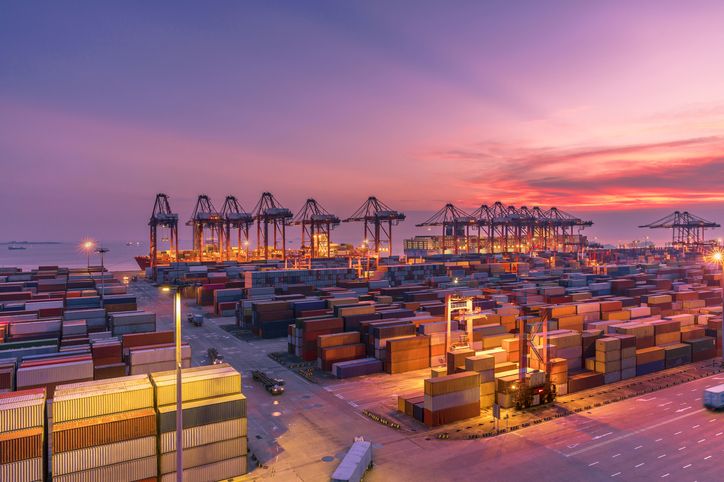Global value chains could significantly amplify the impact of the pandemic on the world economy, the European Central Bank (ECB) found in a study.
Covid-19 has struck value chains in Asia, Europe and the Americas.
Demand shocks in one country may be passed upstream through the global production network to input suppliers, magnifying the initial shock, while supply disruptions can be transmitted downstream, the recently published study said.
The analysis suggests that global value chain spillovers could amplify the decline in world trade by some 25%.
Effects were quantified from direct bilateral trade linkages or indirect demand fluctuations in third countries.
As major supply chain hubs, South Korea, Germany and China account for 20% of the total estimated decline in world exports arising from indirect linkages.
The below chart shows estimates of the supply chain amplification effect in percentages of the fall in trade through direct linkages.

Availability of buffer stocks
Christoph Siepmann, senior economist at Generali Insurance Asset Management, agreed with the results, but said that a 25% decline was an upper bound estimate.
“Using input-output tables implicitly assumes [that] no substitution is possible and no buffer stocks are available,” he told Expert Investor.
“The production of various goods can depend critically on the availability of certain intermediate inputs [at a national or international level]. It depends on whether the intermediate provider or the transport means are in lockdown or not.
“The impact on production also depends on the question of whether close substitutes for the missing parts may be available and on the level of stocks that can buffer the break-down in input deliveries,” he said.
Elga Bartsch, head of macro research at the Blackrock Investment Institute, also agreed with the ECB’s study but cautioned against reading too much into near-term data.
“This is because near-term activity patterns are largely determined by government efforts to contain the pandemic. Instead of near-term growth rates, we prefer to look at the cumulative loss in output over time,” she told Expert Investor.
“When we do this, we find that even the more bearish forecasters don’t see the impact of covid-19 anywhere near the global financial crisis,” she explained.
The ECB study also said that, as the global economy recovers in the coming quarters, global value chain linkages could boost world trade.
In its June 2020 macroeconomic forecast, world real imports (excluding the euro area) were projected to decline around 13% in 2020 before returning to positive rates of growth of 8.0% in 2021.
But the study warned that the disruption “may leave a longer-term legacy for global supply chains, leading to a review of production processes and substantial re-shoring.”
Resilience through renationalisation?
Whether renationalisation makes nations more economically resilient is unclear.
Siepmann commented: “International supplies need to be substituted by domestic supplies which could also be in lockdown. There could be the argument that a national lockdown of intermediate and final demand production could be more synchronised while internationally it would be more spread out. But the impact can well be ambivalent.
“Moreover, the international supply chains have developed as an efficient solution to production. Thus, a forced renationalisation would hurt GDP. Politics may interfere in certain sectors (health products) but a broad renationalisation of global supply chains is more a long-term process in our view.
“Moreover, reshoring is easier said than done in times when the covid-19 crisis has impaired corporate balance sheets.”
Bartsch believes that “a fundamental reassessment of global value chains is one of the structural trends that are likely to be accelerated materially by covid-19”.
“Considering the recent pandemic experience and with an eye on increasing protectionist policy measures in a range of countries, companies are assessing the resilience of their supply chains. Overtime this assessment will likely lead to the relocation of parts of the supply chains, but this does not necessarily imply only renationalisation.
“[Resilience] will only be achieved by a diversified approach across different production locations. Prioritising the safety of the global supply chain could come, at least in the near term, at the expense of efficiency,” she said.







